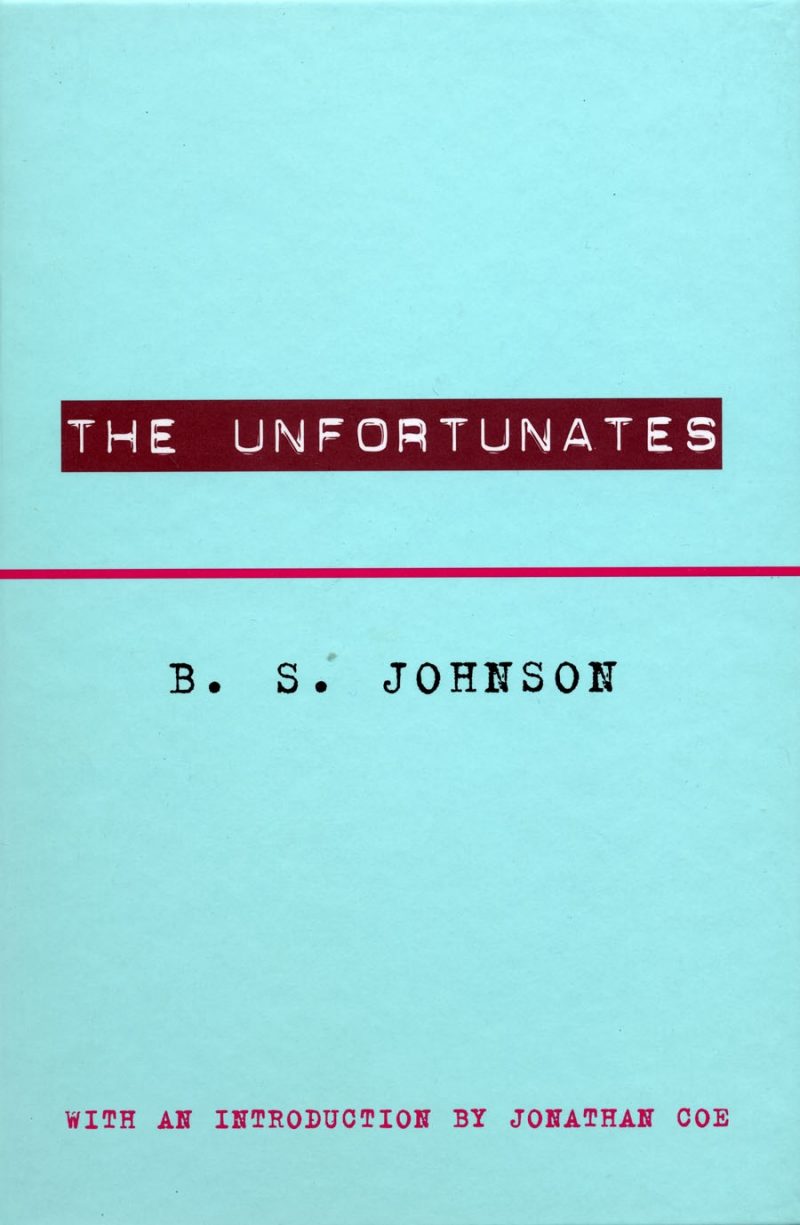The book arrives in a box shaped like a book. Contained within the box are twenty-eight slight pamphlets (including the excellent introduction written by Jonathan Coe) bound neatly by a red paper band. First published in 1969, The Unfortunates has never stayed in print for very long, and it is not well-known to today’s reading public. The writer, too, who killed himself when he was forty years old, remains largely unknown, even though writers like Samuel Beckett endorsed his work during his lifetime.
One reason for Johnson’s obscurity might be that he is simply a difficult writer to peg. Although often categorized as “an experimental writer,” Johnson is a remarkably easy read. The inlay note of The Unfortunates instructs the readers that apart from the first and last sections of the novel, the remaining sections can be read in random order. One might be reminded of a similar instruction found at the beginning of Julio Cortázar’s Hopscotch, suggesting two alternate sequences of reading the novel. Or Borges’s proto-hypertextual short fiction, as well as the multidirectional hypertext fiction espoused by Robert Coover. Yet, whereas hypertexts challenge their readers to confront the possibility of the story’s multivalent endings (or no ending), The Unfortunates has a beginning and an end that serve as definite bookends to its twenty-five aleatoric parts. Perhaps a more fitting analogue to The Unfortunates, then, might be Bach’s “Goldberg Variations,” which begins with an aria and ends, after thirty variations on a theme, with a recapitulation of that aria: a single moment unfolded.
B.S. Johnson wrote strongly autobiographical novels, and the situational context of The Unfortunates is simple: Johnson is assigned to report on a football match between City and Manchester United on a Saturday afternoon and, in the meanwhile, ruminates upon his friend Tony Tillinghast, who died from cancer when he was twenty-nine years old. Every section of the novel is in essence the author’s memory traipsing around that death. The illusion of the forward-moving pace of the novel is created by Johnson’s long but stuttering prose reflecting his state of mind, compulsively contemplating all manifestations of loss in his life. Johnson is fundamentally and stylistically different from writers like Borges and Cortázar, who were masters of ironic disguises and deflections. His writing is emotionally forthright, even if it is formally refracted. His idiosyncratic long sentences tend unremittingly toward grief and regret, their effect heightened by Sternian ellipses, dotted intermittently and self-consciously by deflating expressions like “ha” or “yes.” Borne by the curious lull of Johnson’s sentences, it isn’t long before the reader realizes that the author’s elegy for his dead friend is also a foreboding for his own disintegration.
The Unfortunates is a sad book to read, especially given the fact of the author’s suicide. It seems no coincidence that Johnson chose to kill himself on November 13, 1973, on the anniversary of his friend Tony’s death. In the novel, before Tony dies, the author describes the death of another friend, Paul, who had killed himself by hanging, and of what they found in his room: “on his desk were diagrams of a man hanging, measurements and calculations of a drop, the stairwell. And a poem.” The retrospective effect is that one is reading in The Unfortunates a diagram of the author’s own suicide. B. S. Johnson’s suicide note was a five-word poem: “This is my last / word.”
Format: Boxed paperbook; Size: 5″ x 8″; Price: $24.95; Publisher: New Directions; Editor: Declan Spring; Book designer: The Senate, U.K.; Representative sentence: “It was obvious to me that even if he was still there the following week, he would be less able to talk, at the rate he was deteriorating, disintegrating, so the last thing I said to him, all I had to give him, alone with him, with my coat on, about to go, the car waiting outside to run us to the station, staring down at him, facing those eyes, he staring back all the time now, it must have been a great effort for him, yes, and I said, it was all I had, what else could I do, I said, I’ll get it all down, mate.”





